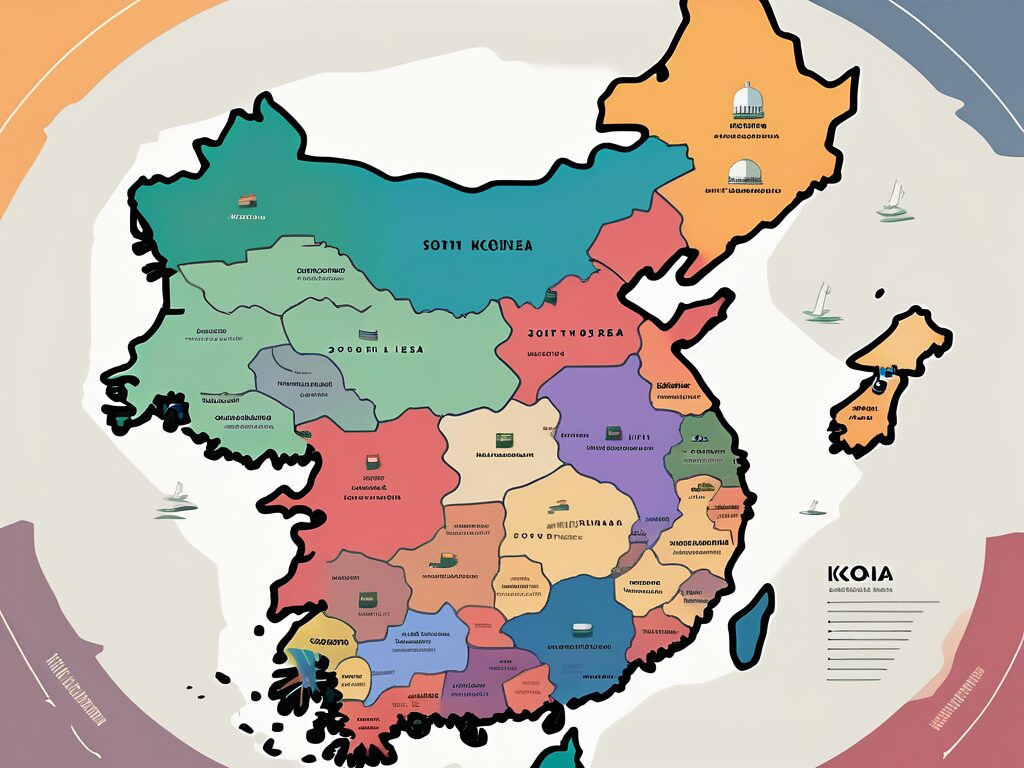Top Insights on English Proficiency Levels in South Korea 2025
South Korea, often referred to as the Land of the Morning Calm, is a nation that prioritizes education as a cornerstone of its societal development. In the context of globalization and the increasing significance of English as a global lingua franca, English proficiency has emerged as a critical focus within the South Korean educational framework. This guide provides an in-depth analysis of the current state of English proficiency levels in South Korea, examining the factors influencing these levels, the initiatives aimed at enhancing proficiency, and the broader implications for South Korean society and its economy.
Current Landscape of English Proficiency in South Korea
English Proficiency Rankings
As per the latest EF English Proficiency Index (EPI), South Korea is positioned 27th out of 100 countries regarding English proficiency. This ranking categorizes South Korea within the ‘moderate proficiency’ tier. Notably, South Korea surpasses several European nations where English is not the primary language, including France and Italy.
However, when evaluated within the Asian context, South Korea’s ranking appears less favorable, trailing behind countries such as Singapore, the Philippines, and Malaysia. This disparity underscores the necessity for ongoing efforts to elevate English proficiency across the nation.
Determinants of English Proficiency
Several key factors contribute to the levels of English proficiency observed in South Korea. A primary determinant is the emphasis placed on English education within the national curriculum. English is mandated as a core subject starting from the third grade, and a substantial portion of the university entrance examination is allocated to English language assessment.
Despite this emphasis, traditional pedagogical approaches, which often rely on rote memorization and grammar translation, have faced criticism for their ineffectiveness in fostering practical English communication skills. Consequently, there is a growing demand for innovative English education methodologies, including immersive language programs and conversation-centric classes.
Initiatives to Enhance English Proficiency in South Korea
Government-Led Programs
The South Korean government has instituted various initiatives aimed at bolstering English proficiency nationwide. One notable program is the ‘English Village‘ initiative, designed to immerse students in an English-speaking environment. These English Villages function as educational theme parks, providing students with opportunities to practice English in authentic contexts.
Additionally, the government has prioritized the recruitment of native English speakers to serve as educators in public schools. These instructors collaborate with Korean English teachers to enhance students’ exposure to native pronunciation and conversational skills.
Private English Education Sector
Complementing government initiatives, South Korea boasts a robust private education sector dedicated to English language acquisition. Known as ‘hagwons’, these private academies offer supplementary English classes after school hours. Many hagwons employ native English speakers and utilize more interactive and engaging teaching methodologies compared to conventional school settings.
However, the prevalence of hagwons raises concerns regarding educational equity, as not all families can afford the substantial fees associated with these institutions. This situation highlights the influence of socio-economic status on English proficiency, further emphasizing the need for effective English education within public schools.
Societal and Economic Implications of English Proficiency
Social Ramifications
English proficiency significantly impacts South Korean society, influencing employment opportunities, particularly in the corporate sector, where a requisite level of English proficiency is often mandated. Furthermore, English proficiency is frequently associated with elevated social status, reflecting a high level of education and cosmopolitanism.
Conversely, the societal emphasis on English proficiency has engendered considerable stress among students, who frequently encounter intense pressure to excel in English. This phenomenon has sparked discussions regarding the role of English in South Korean society and the necessity for a more balanced approach to language education.
Economic Consequences
From an economic perspective, English proficiency plays a pivotal role in enhancing South Korea’s competitiveness in the global marketplace. Numerous South Korean enterprises operate on an international scale, and possessing employees with strong English skills facilitates effective communication with foreign partners and clients.
Moreover, the English education sector constitutes a significant component of the South Korean economy. The demand for English learning resources, ranging from textbooks to private tutoring services, generates substantial revenue. However, this reliance on private education raises critical questions regarding the sustainability of such an approach and the imperative for equitable access to quality English education.
Conclusion
The levels of English proficiency in South Korea are influenced by a complex interplay of factors, including educational policies, teaching methodologies, and socio-economic conditions. While substantial efforts have been made to enhance English proficiency, challenges persist, particularly concerning educational inequality and the pressures faced by students.
As South Korea continues to navigate its role in an increasingly globalized world, the issue of English proficiency will remain a focal point. Observing how the nation adapts its English education strategies in the future—balancing the necessity for proficiency with the well-being of its students and the preservation of its linguistic and cultural heritage—will be of paramount interest.
Advance Your Teaching Career with IPGCE
As South Korea intensifies its focus on English proficiency, the demand for qualified educators with a comprehensive understanding of international education standards is escalating. For educators seeking to enhance their qualifications and embrace global teaching opportunities, the International Postgraduate Certificate in Education (iPGCE) program offers a pathway to success. This program is designed to address the challenges posed by stringent qualification requirements, limited career advancement, professional isolation, and the necessity for a thorough understanding of global education systems. With flexible online study options, the iPGCE empowers educators to join a global network, improve their prospects for interviews and promotions, and significantly increase their earning potential. Do not allow inadequate credentials to hinder your career progression. Enroll in the UK’s leading Teacher Training Course and transform your professional journey today.

